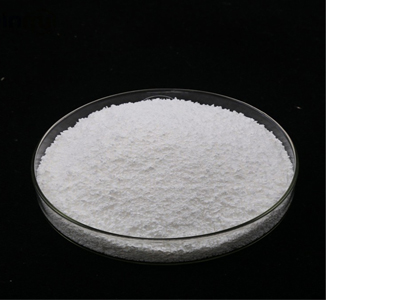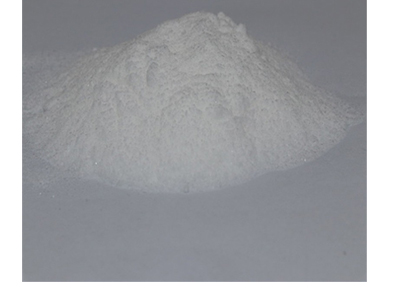Is Potassium Sorbate Safe To Eat?
Potassium sorbate was discovered by the French in the 1850s from the berries of the mountain ash tree. It extends the shelf life of foods by preventing the growth of molds, yeasts, and fungi. Its safety and use as a preservative have been studied for the past fifty years. It was recognized as safe by the U.S. Food and Drug Administration (FDA) when used appropriately. You will find potassium sorbate on the ingredient lists of many common foods. So what exactly does potassium sorbate do? Next, the potassium sorbate supplier will share the following content with you.
What Is Potassium Sorbate?
How Potassium Sorbate Is Made
What Does Potassium Sorbate Do in Our Products?
Is Potassium Sorbate Safe To Eat?
Why We Use Potassium Sorbate?

What is potassium sorbate?
Potassium sorbate is a salt of sorbic acid, naturally found in some fruits (such as sorrel berries). Commercial ingredients are produced synthetically, creating so-called "identical" chemicals (chemically equivalent to molecules found in nature).
It is a popular preservative because it is effective and does not change the quality of the product, such as taste, odor, or appearance. It is also water-soluble and can be used at room temperature. Potassium sorbate is a chemical additive. It is widely used as a preservative in food, beverages, and personal care products. It is an odorless and tasteless salt synthesized from sorbic acid and potassium hydroxide. If you want to get more information about high-quality potassium sorbate wholesale, welcome to contact us.
How potassium sorbate is made?
The main component of potassium sorbate is sorbic acid, which occurs naturally as para-sorbic acid in the berries of the sorrel tree. Examples include the condensation of crotonaldehyde and acetic or malonic acid in pyridine solutions, the condensation of crotonaldehyde and ethylene in the presence of boron trifluoride, and other processes. Potassium sorbate is manufactured by reacting sorbic acid with equimolar amounts of potassium hydroxide. The manufacturer then crystallizes the resulting potassium sorbate from an aqueous solution of ethanol.

What does potassium sorbate do in our products?
Potassium sorbate is a preservative; it prevents the growth of microorganisms. It is a common ingredient in cheeses, baked goods, juices, produce, wines, sodas, pickled products, and some protein products. Potassium sorbate is also found in thousands of personal care products, including shampoos, conditioners, body washes, moisturizers, cosmetics, sunscreens, and other items. It is soluble in alcohol and slightly soluble in water. Welcome to contact us today or request a quote.
Is potassium sorbate safe to eat?
Regulatory agencies such as the FDA, the Food and Agriculture Organization of the United Nations, and the European Food Safety Authority (EFSA) have determined that potassium sorbate is "generally recognized as safe", abbreviated as GRAS. when you consume potassium sorbate as a food additive, it passes harmlessly through your system in the form of water and carbon dioxide. It does not accumulate in your body.
Why do we use potassium sorbate?
Potassium sorbate is a food-grade preservative that has been used effectively for decades and is generally recognized as safe (GRAS) for food preservation. Studies using dilutions similar to those used in body care products have found it to be virtually non-irritating and non-sensitizing. In fact, the toxicity of potassium sorbate is very close to that of table salt. More importantly, it is included in the Green Chemical Handbook, which is approved by the Natural Products Association and is also approved by Whole Foods Quality Body Care.
(The source is from here.)
The more if you want to know ,you can click the above all
https://www.qinmuchem.com/seokeywords/3.html
https://www.qinmuchem.com/seokeywords/4.html
https://www.qinmuchem.com/seokeywords/api-and-pharmaceutical-intermediates.html
https://www.qinmuchem.com/seokeywords/list-of-pharma-intermediates.html
https://www.qinmuchem.com/seokeywords/7.html
https://www.qinmuchem.com/seokeywords/pharmaceutical-intermediates-meaning.html
https://www.qinmuchem.com/seokeywords/pharma-intermediates-manufacturers.html
https://www.qinmuchem.com/seokeywords/intermediate-pharma.html
https://www.qinmuchem.com/seokeywords/api-intermediate-manufacturers.html
https://www.qinmuchem.com/seokeywords/pharmaceutical-intermediates-manufacturers.html
https://www.qinmuchem.com/seokeywords/apis-and-intermediates.html
https://www.qinmuchem.com/seokeywords/pharmaceutical-intermediates-list.html
https://www.qinmuchem.com/seokeywords/api-intermediates.html
https://www.qinmuchem.com/seokeywords/pharma-intermediates.html
评论
发表评论